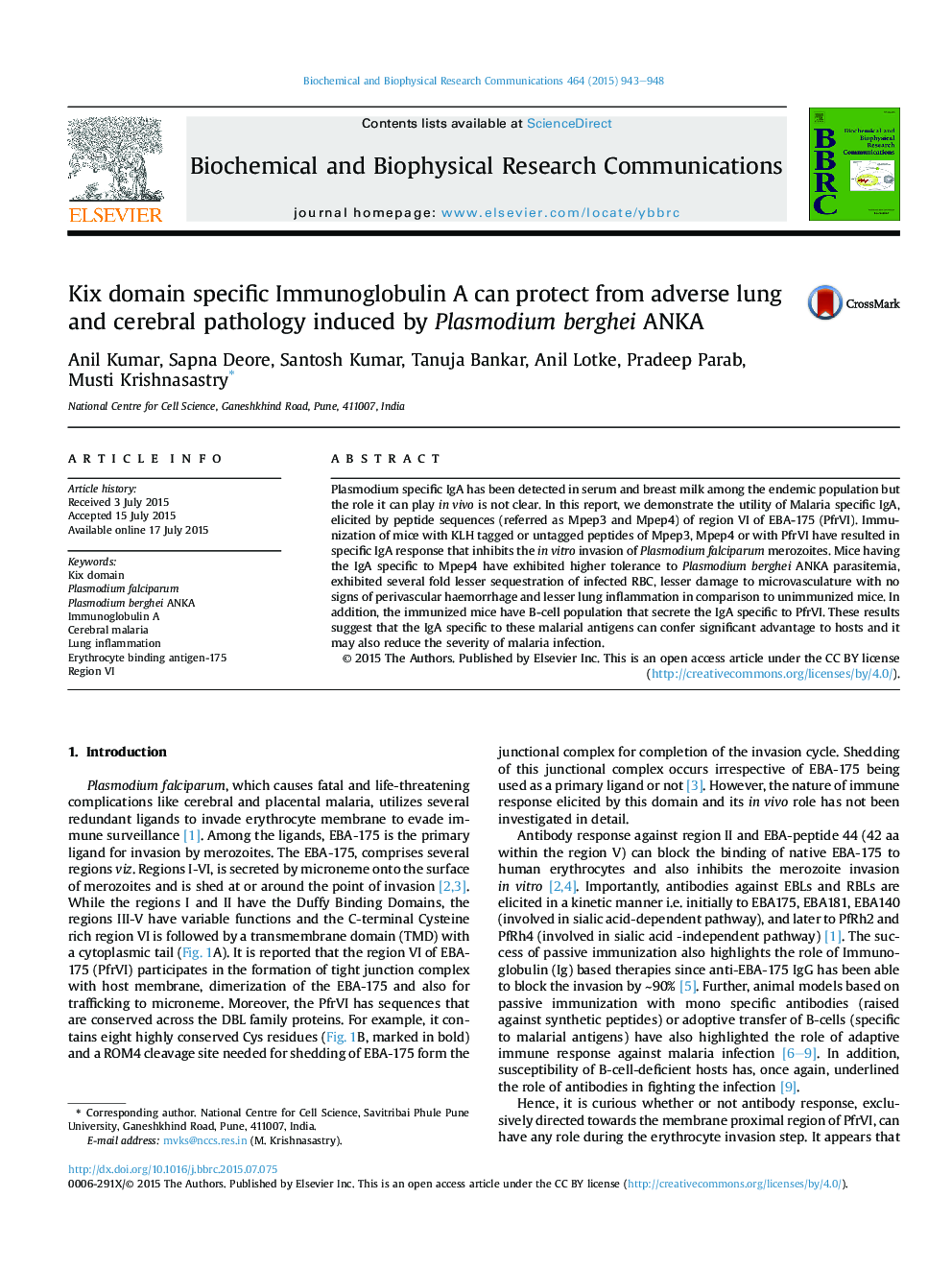| Article ID | Journal | Published Year | Pages | File Type |
|---|---|---|---|---|
| 10750525 | Biochemical and Biophysical Research Communications | 2015 | 6 Pages |
Abstract
Plasmodium specific IgA has been detected in serum and breast milk among the endemic population but the role it can play in vivo is not clear. In this report, we demonstrate the utility of Malaria specific IgA, elicited by peptide sequences (referred as Mpep3 and Mpep4) of region VI of EBA-175 (PfrVI). Immunization of mice with KLH tagged or untagged peptides of Mpep3, Mpep4 or with PfrVI have resulted in specific IgA response that inhibits the in vitro invasion of Plasmodium falciparum merozoites. Mice having the IgA specific to Mpep4 have exhibited higher tolerance to Plasmodium berghei ANKA parasitemia, exhibited several fold lesser sequestration of infected RBC, lesser damage to microvasculature with no signs of perivascular haemorrhage and lesser lung inflammation in comparison to unimmunized mice. In addition, the immunized mice have B-cell population that secrete the IgA specific to PfrVI. These results suggest that the IgA specific to these malarial antigens can confer significant advantage to hosts and it may also reduce the severity of malaria infection.
Keywords
Related Topics
Life Sciences
Biochemistry, Genetics and Molecular Biology
Biochemistry
Authors
Anil Kumar, Sapna Deore, Santosh Kumar, Tanuja Bankar, Anil Lotke, Pradeep Parab, Musti Krishnasastry,
